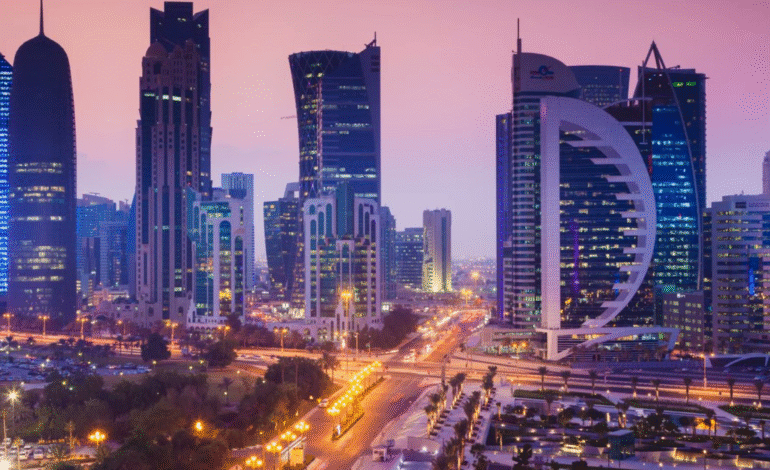Qatar Economy Forecasts Strong Growth Through 2026 And 2027

Qatar is entering a new phase of economic expansion, with forecasts indicating rapid growth in the coming years. According to the World Bank’s Gulf Economic Update (GEU), Qatar’s economy is expected to accelerate from 2.4 percent in 2025 to an average of 6.5 percent during 2026 and 2027.
This positive outlook reflects Qatar’s ongoing efforts to strengthen its economy through diversification, strategic investments, and reforms designed to enhance competitiveness. The World Bank report highlights Qatar as one of the standout performers in the Gulf region, with its strong growth prospects driven by both hydrocarbon and non-hydrocarbon sectors.
World Bank Highlights Qatar’s Economic Outlook
The latest World Bank Gulf Economic Update underscores Qatar’s resilience and capacity for growth. The report points to Qatar’s successful balance of prudent fiscal management and ambitious development plans.
Despite global economic challenges, Qatar’s economy is expected to outperform many of its regional peers. This is attributed to its stable macroeconomic environment, robust investment climate, and significant infrastructure development.
Energy Sector Expansion Continues To Drive Growth
Qatar’s energy sector remains a key pillar of its economic success. The country’s leadership in liquefied natural gas (LNG) production positions it strongly in global markets, especially as demand for cleaner energy sources grows.
Major projects such as the North Field Expansion are set to boost LNG output significantly, contributing to GDP growth and supporting government revenues. This expansion not only strengthens Qatar’s position as the world’s leading LNG exporter but also enables investments in other sectors.
Diversification Strengthens Non-Oil Sectors
While energy continues to be vital, Qatar’s diversification strategy is delivering tangible results. The World Bank report highlights the growing contributions of financial services, logistics, tourism, real estate, and technology to GDP.
Qatar’s focus on digital transformation, smart cities, and entrepreneurship is creating new opportunities for businesses and investors. The Qatar National Vision 2030 provides a framework for building a sustainable, knowledge-based economy that can withstand global market volatility.
Infrastructure Investments Support Long-Term Growth
Qatar’s infrastructure development remains central to its economic strategy. Large-scale projects in transport, ports, aviation, and urban development are enhancing the country’s role as a regional trade and logistics hub.
Following the successful hosting of the FIFA World Cup 2022, Qatar has continued to build on its upgraded infrastructure to attract international events, tourists, and business activity. These investments help fuel domestic demand and support non-oil sector expansion.
Fiscal Discipline And Economic Stability
The World Bank praises Qatar’s prudent fiscal policies, which have ensured macroeconomic stability while allowing for strategic spending on development priorities. Qatar’s effective management of public finances has helped maintain healthy reserves, control debt levels, and sustain investor confidence.
Strong fiscal fundamentals provide a stable foundation for the growth forecasted through 2027, allowing the country to navigate global economic uncertainties with resilience.
Global Trade Partnerships Strengthen Qatar’s Position
Qatar’s active participation in global trade and investment partnerships is contributing to its economic growth. By forging new agreements and expanding ties with key markets in Asia, Europe, and beyond, Qatar is enhancing market access for its exports and creating new opportunities for domestic industries.
These international partnerships support Qatar’s diversification efforts and attract foreign direct investment that complements its economic priorities.
Sustainability And Green Economy Initiatives
Sustainability plays an increasingly important role in Qatar’s development plans. The country is investing in renewable energy, energy efficiency, green building technologies, and water conservation as part of its commitment to environmental responsibility.
These initiatives not only support global climate goals but also align with investor preferences for sustainable, ESG-compliant economies. Qatar’s efforts in this area further enhance its attractiveness as a destination for forward-looking investments.
Qatar’s Competitive Edge In The GCC
Qatar’s strategic location, advanced infrastructure, transparent regulatory environment, and strong governance provide it with a competitive advantage in the GCC. Combined with its proactive economic planning, these factors will help the country achieve the World Bank’s forecast of 6.5 percent average growth during 2026 and 2027, significantly outpacing regional peers.
The synergy between traditional energy strength and emerging sectors positions Qatar for a dynamic, sustainable economic future.







